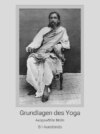Kitabı oku: «All Life Is Yoga: Work», sayfa 2
Chapter 3
Power of Right Attitude
Words of the Mother
Is it really the best that always happens?... It is clear that all that has happened had to happen: it could not be otherwise – by the universal determinism it had to happen. But we can say so only after it has happened, not before. For the problem of the very best that can happen is an individual problem, whether the individual be a nation or a single human being; and all depends upon the personal attitude. If, in the presence of circumstances that are about to take place, you can take the highest attitude possible – that is, if you put your consciousness in contact with the highest consciousness within reach, you can be absolutely sure that in that case it is the best that can happen to you. But as soon as you fall from this consciousness into a lower state, then it is evidently not the best that can happen, for the simple reason that you are not in your very best consciousness. I even go so far as to affirm that in the zone of immediate influence of each one, the right attitude not only has the power to turn every circumstance to advantage but can change the very circumstance itself. For instance, when a man comes to kill you, if you remain in the ordinary consciousness and get frightened out of your wits, he will most probably succeed in doing what he came for; if you rise a little higher and though full of fear call for the divine help, he may just miss you, doing you a slight injury; if, however, you have the right attitude and the full consciousness of the divine presence everywhere around you, he will not be able to lift even a finger against you.
This truth is just the key to the whole problem of transformation. Always keep in touch with the divine presence, try to bring it down – and the very best will always take place. Of course the world will not change at once, but it will go forward as rapidly as it possibly can....
If each of you did your utmost, then there would be the right collaboration and the result would be so much the quicker. I have had innumerable examples of the power of right attitude. I have seen crowds saved from catastrophes by one single person keeping the right attitude. But it must be an attitude that does not remain somewhere very high and leaves the body to its usual reactions. If you remain high up like that, saying, “Let God’s will be done”, you may get killed all the same. For your body may be quite undivine, shivering with fear: the thing is to hold the true consciousness in the body itself and not have the least fear and be full of the divine peace. Then indeed there is no danger. Not only can attacks of men be warded off, but beasts also and even the elements can be affected. I can give you a little example. You remember the night of the great cyclone, when there was a tremendous noise and splash of rain all about the place. I thought I would go to Sri Aurobindo’s room and help him shut the windows. I just opened his door and found him sitting quietly at his desk, writing. There was such a solid peace in the room that nobody would have dreamed that a cyclone was raging outside. All the windows were wide open, not a drop of rain was coming inside.
* * *
Chapter 4
Is Business Something Tainted?
Words of Sri Aurobindo
What is of first importance is not the religious or non-religious character of the work done, but the inner attitude in which it is done. If the attitude is vital and not psychic, then one throws oneself out in the work and loses the inner contact. If it is psychic, the inner contact remains, the Force is felt supporting or doing the work and the sadhana progresses.
*
Words of Sri Aurobindo
I never thought that politics or feeding the poor or writing beautiful poems would lead straight to Vaikuntha or the Absolute. If it were so, Romesh Dutt on one side and Baudelaire on the other would be the first to attain the Highest and welcome us there. It is not the form of the work itself or mere activity but the consciousness and Godward will behind it that are the essence of Karmayoga; the work is only the necessary instrumentation for the union with the Master of works, the transit to the pure Will and power of Light from the will and power of the Ignorance.
*
Words of Sri Aurobindo
I may say however that I do not regard business as something evil or tainted, any more than it was so regarded in ancient spiritual India. If I did, I would not be able to receive money from X or from those of our disciples who in Bombay trade with East Africa; nor could we then encourage them to go on with their work but would have to tell them to throw it up and attend to their spiritual progress alone. How are we to reconcile X’s seeking after spiritual light and his mill? Ought I not to tell him to leave his mill to itself and to the devil and go into some Ashram to meditate? Even if I myself had had the command to do business as I had the command to do politics I would have done it without the least spiritual or moral compunction. All depends on the spirit in which a thing is done, the principle on which it is built and use to which it is turned. I have done politics and the most violent kind of revolutionary politics, ghoram karma, and I have supported war and sent men to it, even though politics is not always or often a very clean occupation nor can war be called a spiritual line of action. But Krishna calls upon Arjuna to carry on war of the most terrible kind and by his example encourage men to do every kind of human work, sarvakarmani. Do you contend that Krishna was an unspiritual man and that his advice to Arjuna was mistaken or wrong in principle? Krishna goes farther and declares that a man by doing in the right way and in the right spirit the work dictated to him by his fundamental nature, temperament and capacity and according to his and its dharma can move towards the Divine. He validates the function and dharma of the Vaishya as well as of the Brahmin and Kshatriya. It is in his view quite possible for a man to do business and make money and earn profits and yet be a spiritual man, practise Yoga, have an inner life. The Gita is constantly justifying works as a means of spiritual salvation and enjoining a Yoga of works as well as of Bhakti and Knowledge. Krishna, however, superimposes a higher law also that work must be done without desire, without attachment to any fruit or reward, without any egoistic attitude or motive, as an offering or sacrifice to the Divine. This is the traditional Indian attitude towards these things, that all work can be done if it is done according to the dharma and, if it is rightly done, it does not prevent the approach to the Divine or the access to spiritual knowledge and the spiritual life.
There is of course also the ascetic ideal which is necessary for many and has its place in the spiritual order. I would myself say that no man can be spiritually complete if he cannot live ascetically or follow a life as bare as the barest anchorite’s. Obviously, greed for wealth and money-making has to be absent from his nature as much as greed for food or any other greed and all attachment to these things must be renounced from his consciousness. But I do not regard the ascetic way of living as indispensable to spiritual perfection or as identical with it. There is the way of spiritual self-mastery and the way of spiritual self-giving and surrender to the Divine, abandoning ego and desire even in the midst of action or of any kind of work or all kinds of work demanded from us by the Divine. If it were not so, there would not have been great spiritual men like Janaka or Vidura in India and even there would have been no Krishna or else Krishna would have been not the Lord of Brindavan and Mathura and Dwarka or a prince and warrior or the charioteer of Kurukshetra, but only one more great anchorite. The Indian scriptures and Indian tradition, in the Mahabharata and elsewhere, make room both for the spirituality of the renunciation of life and for the spiritual life of action. One cannot say that one only is the Indian tradition and that the acceptance of life and works of all kinds, sarvakarmani, is un-Indian, European or Western and unspiritual.
* * *
Chapter 5
Sri Krishna’s Answer to Arjuna
Words of Sri Aurobindo
The Gita ... puts first a sort of large preliminary basis of works and knowledge which contains an element leading up to bhakti and to a greater knowledge, but not yet fully arriving. The six chapters present us with that basis.
We may then pause to consider how far they have carried the solution of the original problem with which the Gita started. The problem in itself, it may be useful again to remark, need not necessarily have led up to the whole question of the nature of existence and of the replacement of the normal by the spiritual life. It might have been dealt with on a pragmatical or an ethical basis or from an intellectual or an ideal standpoint or by a consideration of all of these together; that in fact would have been our modern method of solving the difficulty. By itself it raises in the first instance just this question, whether Arjuna should be governed by the ethical sense of personal sin in slaughter or by the consideration equally ethical of his public and social duty, the defence of the Right, the opposition demanded by conscience from all noble natures to the armed forces of injustice and oppression? That question has been raised in our own time and the present hour, and it can be solved, as we solve it now, by one or other of very various solutions, but all from the standpoint of our normal life and our normal human mind. It may be answered as a question between the personal conscience and our duty to the society and the State, between an ideal and a practical morality, between “soul-force” and the recognition of the troublesome fact that life is not yet at least all soul and that to take up arms for the right in a physical struggle is sometimes inevitable. All these solutions are, however, intellectual, temperamental, emotional; they depend upon the individual standpoint and are at the best our own proper way of meeting the difficulty offered to us, proper because suitable to our nature and the stage of our ethical and intellectual evolution, the best we can, with the light we have, see and do; it leads to no final solution. And this is so because it proceeds from the normal mind which is always a tangle of various tendencies of our being and can only arrive at a choice or an accommodation between them, between our reason, our ethical being, our dynamic needs, our life-instincts, our emotional being and those rarer movements which we may perhaps call soul-instincts or psychical preferences. The Gita recognises that from this standpoint there can be no absolute, only an immediate practical solution and, after offering to Arjuna from the highest ideals of his age just such a practical solution, which he is in no mood to accept and indeed is evidently not intended to accept, it proceeds to quite a different standpoint and to quite another answer.
The Gita’s solution is to rise above our natural being and normal mind, above our intellectual and ethical perplexities into another consciousness with another law of being and therefore another standpoint for our action; where personal desire and personal emotions no longer govern it; where the dualities fall away; where the action is no longer our own and where therefore the sense of personal virtue and personal sin is exceeded; where the universal, the impersonal, the divine spirit works out through us its purpose in the world; where we are ourselves by a new and divine birth changed into being of that Being, consciousness of that Consciousness, power of that Power, bliss of that Bliss, and, living no longer in our lower nature, have no works to do of our own, no personal aim to pursue of our own, but if we do works at all, – and that is the one real problem and difficulty left, – do only the divine works, those of which our outward nature is only a passive instrument and no longer the cause, no longer provides the motive; for the motive-power is above us in the will of the Master of our works. And this is presented to us as the true solution, because it goes back to the real truth of our being and to live according to the real truth of our being is evidently the highest solution and the sole entirely true solution of the problems of our existence. Our mental and vital personality is a truth of our natural existence, but a truth of the ignorance, and all that attaches itself to it is also truth of that order, practically valid for the works of the ignorance, but no longer valid when we get back to the real truth of our being. But how can we actually be sure that this is the truth? We cannot so long as we remain satisfied with our ordinary mental experience; for our normal mental experience is wholly that of this lower nature full of the ignorance. We can only know this greater truth by living it, that is to say, by passing beyond the mental into the spiritual experience, by Yoga. For the living out of spiritual experience until we cease to be mind and become spirit, until, liberated from the imperfections of our present nature, we are able to live entirely in our true and divine being is what in the end we mean by Yoga.
This upward transference of our centre of being and the consequent transformation of our whole existence and consciousness, with a resultant change in the whole spirit and motive of our action, the action often remaining precisely the same in all its outward appearances, makes the gist of the Gita’s Karmayoga. Change your being, be reborn into the spirit and by that new birth proceed with the action to which the Spirit within has appointed you, may be said to be the heart of its message. Or again, put otherwise, with a deeper and more spiritual import, – make the work you have to do here your means of inner spiritual rebirth, the divine birth, and, having become divine, do still divine works as an instrument of the Divine for the leading of the peoples. Therefore there are here two things which have to be clearly laid down and clearly grasped, the way to the change, to this upward transference, this new divine birth, and the nature of the work or rather the spirit in which it has to be done, since the outward form of it need not at all change, although really its scope and aim become quite different. But these two things are practically the same, for the elucidation of one elucidates the other. The spirit of our action arises from the nature of our being and the inner foundation it has taken, but also this nature is itself affected by the trend and spiritual effect of our action; a very great change in the spirit of our works changes the nature of our being and alters the foundation it has taken; it shifts the centre of conscious force from which we act. If life and action were entirely illusory, as some would have it, if the Spirit had nothing to do with works or life, this would not be so; but the soul in us develops itself by life and works and, not indeed so much the action itself, but the way of our soul’s inner force of working determines its relations to the Spirit. This is, indeed, the justification of Karmayoga as a practical means of the higher self-realisation.
* * *
Ücretsiz ön izlemeyi tamamladınız.










